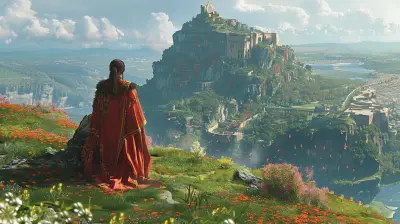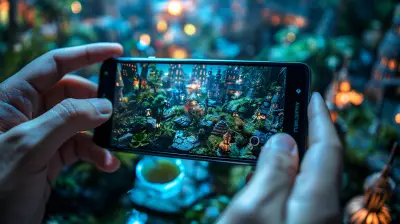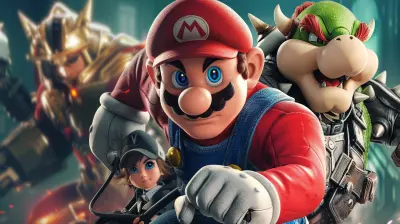Storytelling in Open-World Games: Are Players Truly in Control?
10 August 2025
Open-world games are kind of like pizza. Stick with me here—imagine a pizza with all your favorite toppings. It’s yours. You can eat it however you want (starting from the crust, folding it like a taco, or devouring it slice by slice). But let’s not forget: someone made that pizza. They chose the dough, the toppings, the cheese. Your freedom to enjoy it is limited by the creator's choices. Open-world games are the same way. Sure, they feel like playgrounds where you're the boss, but are you really calling the shots?
This is where storytelling gets tangled up in open-world games. Developers boast about giving players "ultimate freedom" to shape their adventures, but are players truly in control of the narrative, or is it just the illusion of choice? Let’s dive in together and figure this out.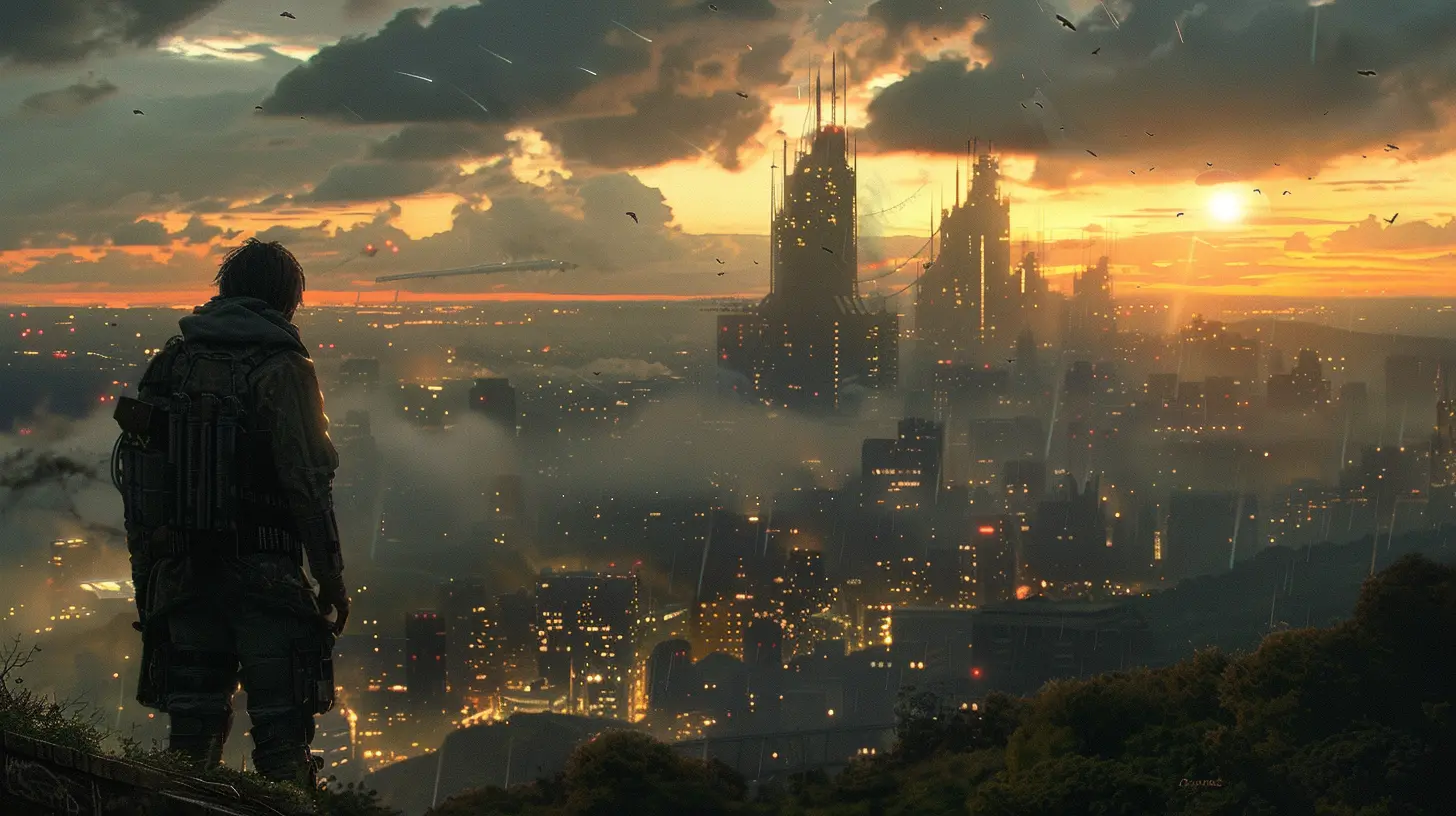
What Makes Open-World Games So Popular?
Before we dig deep, let’s talk about why we even love open-world games so much. What’s the deal with them? Why do we keep coming back for more? It all boils down to three simple things: freedom, exploration, and feeling like a total badass (who wouldn’t love that?).Open-world games hand you the keys to a virtual world and say, “Go nuts.” Whether you’re scaling mountains in The Legend of Zelda: Breath of the Wild, pulling off wild heists in Grand Theft Auto V, or slaying dragons in Skyrim, the appeal is always the same—you get to do what you want, when you want (or so it seems). That freedom to explore, experiment, and engage with the game at your own pace is intoxicating.
But let’s hit pause for a second. If open-world games are supposed to be all about freedom, how does storytelling fit into that? After all, a story is usually something scripted, planned, and structured. How can something linear and controlled coexist with a world that’s meant to feel limitless?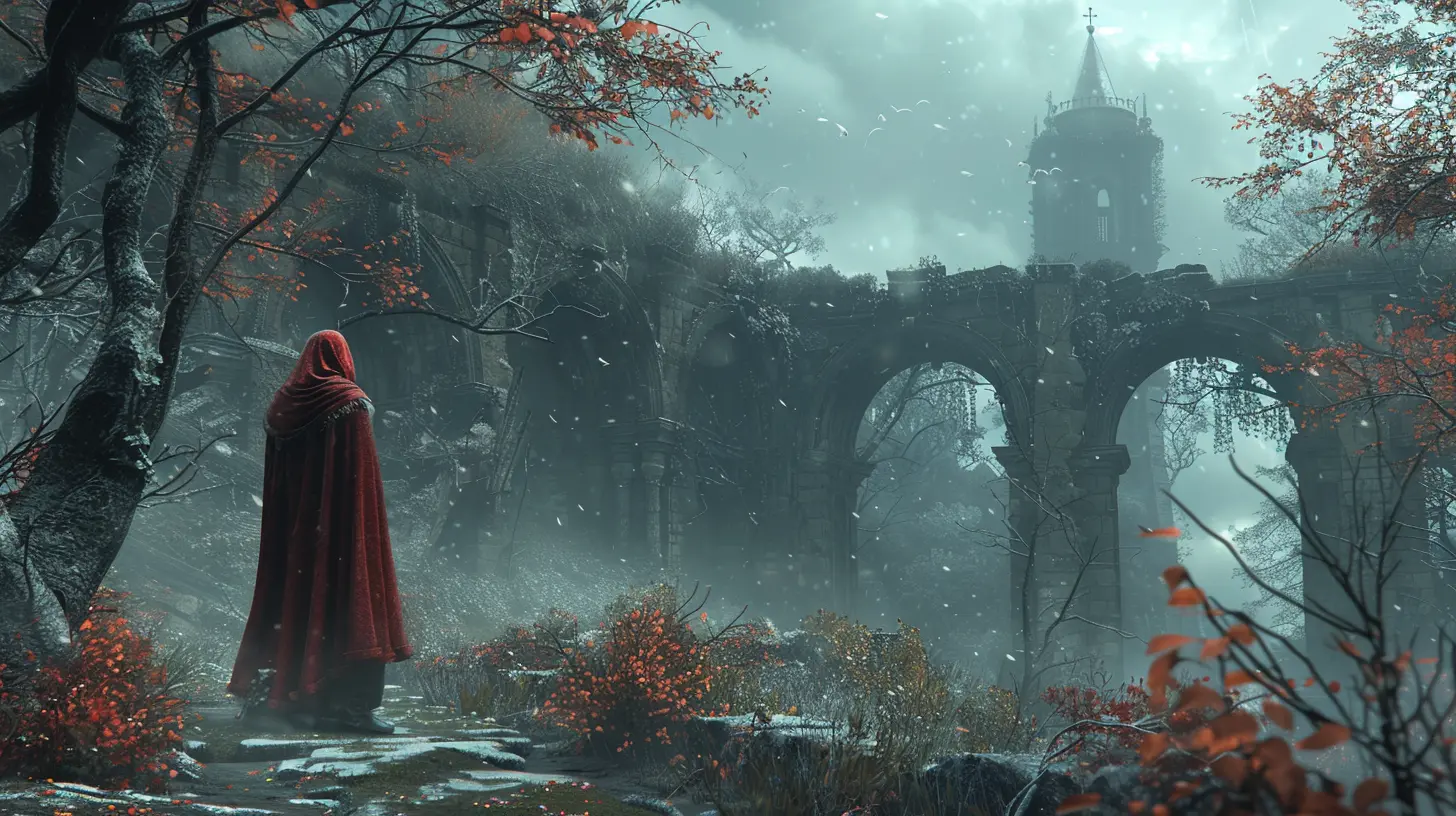
The Balancing Act: Freedom vs. Narrative
Let’s start by stating the obvious: storytelling and open worlds have always had a complicated relationship. It’s like trying to juggle while riding a unicycle. When a game gives players agency to craft their own stories, it risks losing the structure and emotional punch of a traditional narrative. On the flip side, a tightly written story can feel restrictive in a sandbox world, robbing players of the freedom they signed up for.Take Red Dead Redemption 2, for example. Arthur Morgan’s journey through the wild west is one of the most gripping stories in modern gaming. But it’s not a story you can drastically alter. Sure, you can choose how nice or nasty Arthur is, but the main plot marches forward regardless. You’re following a path that Rockstar Games carved out for you. And honestly? That’s not always a bad thing. The emotional beats hit hard because the developers had control over where the story was going.
However, then there’s The Elder Scrolls V: Skyrim, which takes a different approach. In Skyrim, you’re basically the director of your own adventures. The game gives you a bunch of quests, factions, and side missions, and then steps aside. You can ignore the main story entirely and just hunt dragons, become a stealthy assassin, or spend hours crafting potions in a cabin you “borrowed” (read: stole). But the trade-off? Skyrim’s narrative can feel diluted and disconnected because it’s spread so thin.
So, where’s the sweet spot? Can a game truly offer freedom and a meaningful story without the two tripping over each other?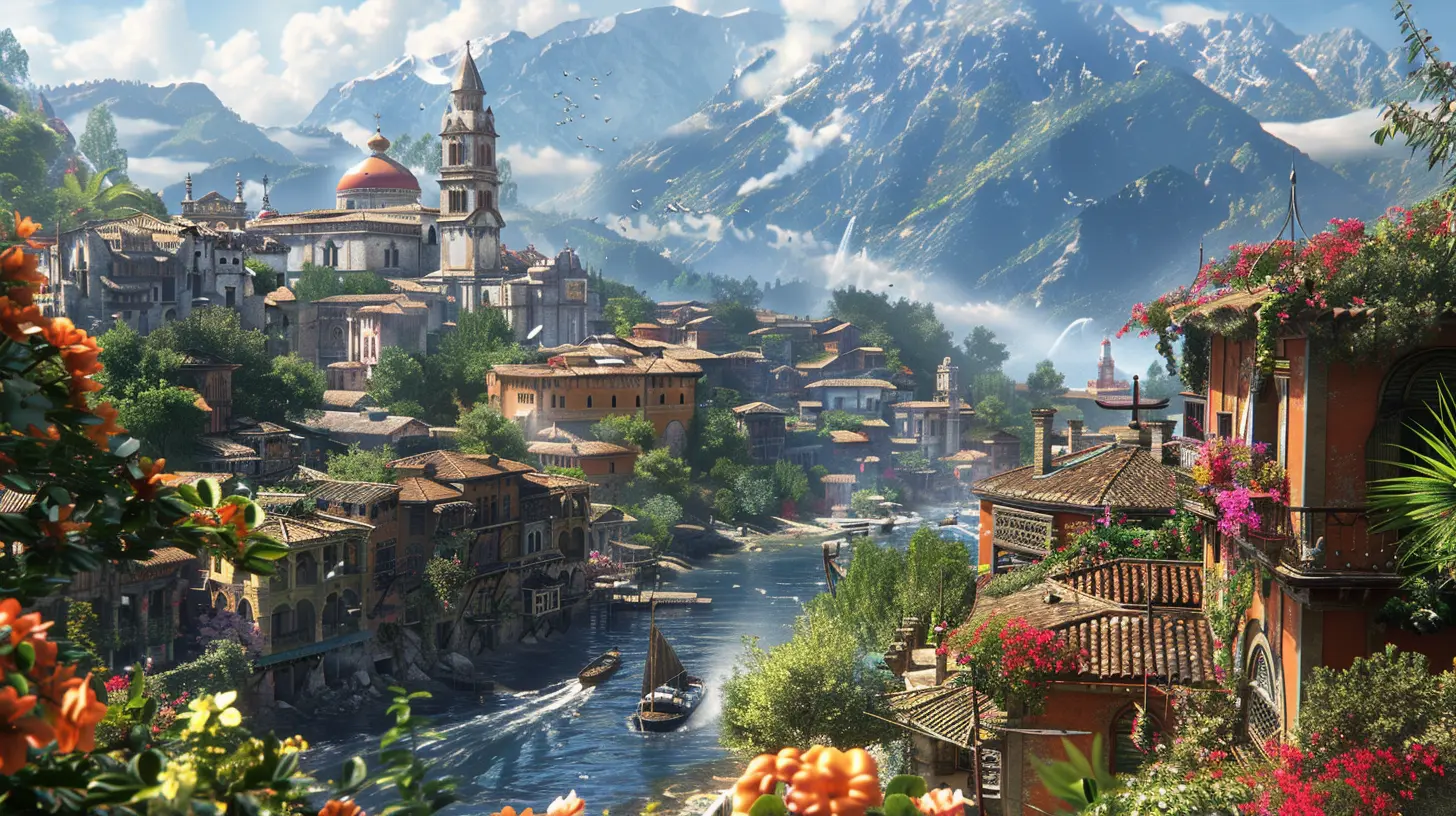
Are You Actually in Control, or Is It Just an Illusion?
Here’s where things get a little philosophical. (Don’t worry, it’s not “sit-in-a-circle-and-contemplate-life” deep, I promise.) When you’re playing an open-world game, how much of your freedom is real, and how much is just smoke and mirrors?Let’s go back to that pizza analogy from earlier. Sure, you’re holding the slices and deciding how to eat them, but you’re still eating what someone else baked. In open-world games, you might feel like you’re charting your own path, but every choice you make is carefully designed by the developers.
Take The Witcher 3: Wild Hunt. That game feels enormous, right? You play as Geralt, wandering through vast forests, snowy mountains, and bustling towns, making decisions that shape the fate of entire kingdoms. Your choices impact the story, sure—but only within limits. You can’t suddenly decide that Geralt is going to quit being a witcher and open a bakery. The choices you make are still tethered to the options the developers gave you.
That’s not a knock on The Witcher 3. In fact, its narrative strengths come from how seamlessly it hides the strings. It gives you just the right number of choices to make you feel like you’re in the driver’s seat, even though the GPS is already programmed. That’s the magic of great open-world storytelling: the illusion of control.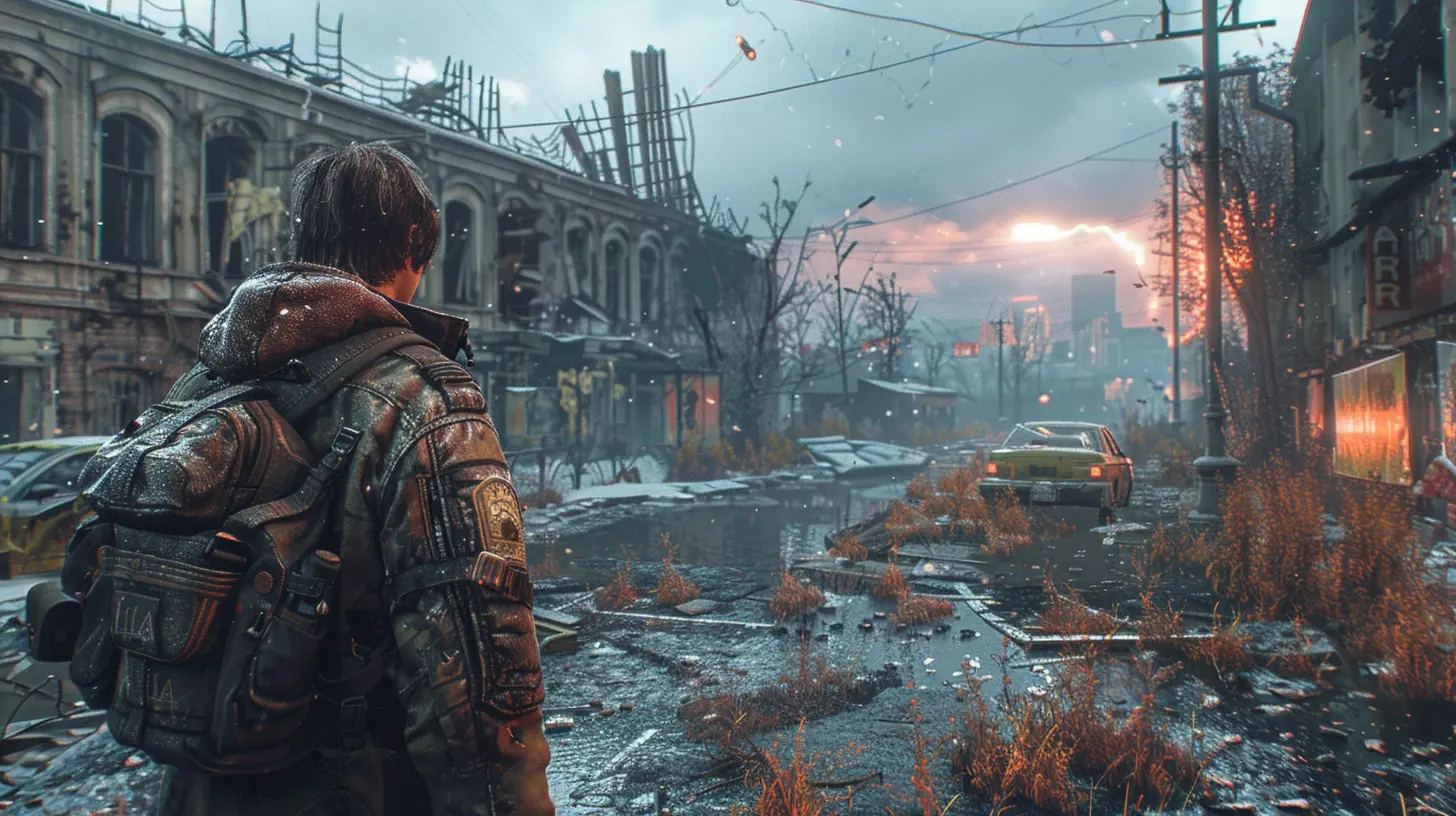
Player-Driven Stories: When Freedom Takes the Wheel
Sometimes, the best stories in open-world games aren’t the ones the developers wrote—it’s the ones the players create. Think about it: how many times have you told a friend, “This one time in Fallout 4...” or “You won’t believe what happened to me in Minecraft”?Games like No Man’s Sky and Minecraft thrive on this player-driven storytelling. They don’t hand you a carefully scripted plot; instead, they give you the tools to write your own adventures. It’s not about reaching a specific ending—it’s about the journey you take along the way. In these games, freedom becomes the story.
But here’s the catch: not everyone wants to be their own storyteller. For some players, crafting a meaningful journey out of a sandbox can feel exhausting or aimless. Some of us just want to lean back and enjoy a well-told story without needing to piece it together ourselves.
Can Open-World Games Evolve Their Storytelling?
So, where do we go from here? How can open-world games push the boundaries of storytelling while still letting players feel like they’re in charge? For one, developers are getting better at blending player choice with strong narratives.Games like Cyberpunk 2077 try to strike that balance. You have a main storyline that unfolds based on your decisions but also a world brimming with side quests and activities to distract you. Some of those side stories are just as emotionally gripping as the main plot, creating a tapestry of interconnected narratives.
AI is another potential game-changer. Imagine a game where NPCs (non-playable characters) react dynamically to your actions, creating a world that truly feels alive and unscripted. You could interact with a merchant, unintentionally spark a town-wide feud, and watch the consequences ripple across the game. Scary? Maybe. Cool? Absolutely.
As technology advances, we might eventually see open-world games where the lines between developer-crafted stories and player-driven narratives blur into something entirely new.
Final Thoughts: Is Freedom Worth the Cost?
At the end of the day, the tension between freedom and storytelling is part of what makes open-world games so exciting. Sure, you might not have total control, but does that really matter? Sometimes, the best stories are the ones we don’t expect—the moments where a scripted event collides with your own decisions, creating something unforgettable.So, are players truly in control in open-world games? Not completely. But maybe that’s okay. After all, even when we’re not in control, we’re still having fun—and isn’t that the whole point?
all images in this post were generated using AI tools
Category:
Gaming CultureAuthor:

Francesca West
Discussion
rate this article
2 comments
Cruz Mahoney
Great insights! While players influence choices, many narratives still guide experiences, limiting true freedom in open-world storytelling.
February 10, 2026 at 5:14 AM
Isaiah Watson
Great insights! The balance between player agency and narrative is fascinating. It really shapes the emotional depth of open-world experiences.
August 16, 2025 at 2:30 AM

Francesca West
Thank you! I'm glad you found the balance between player agency and narrative compelling—it's essential for creating immersive emotional experiences in open-world games.
